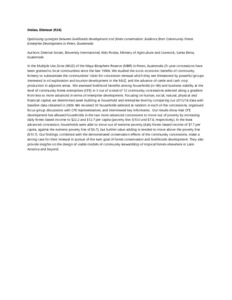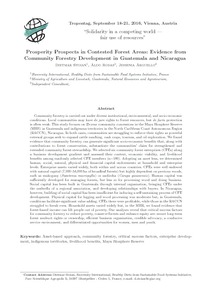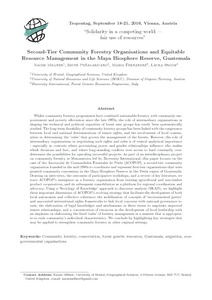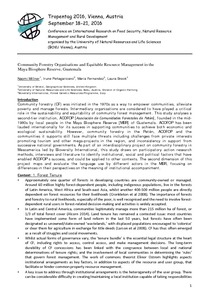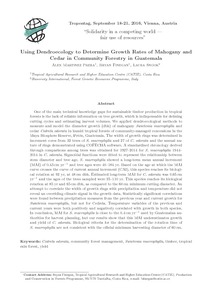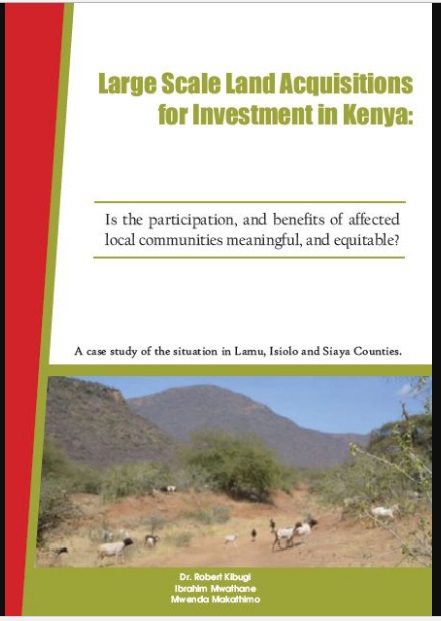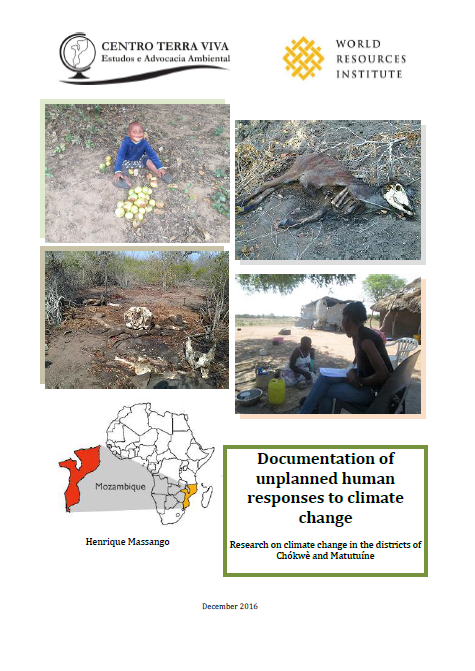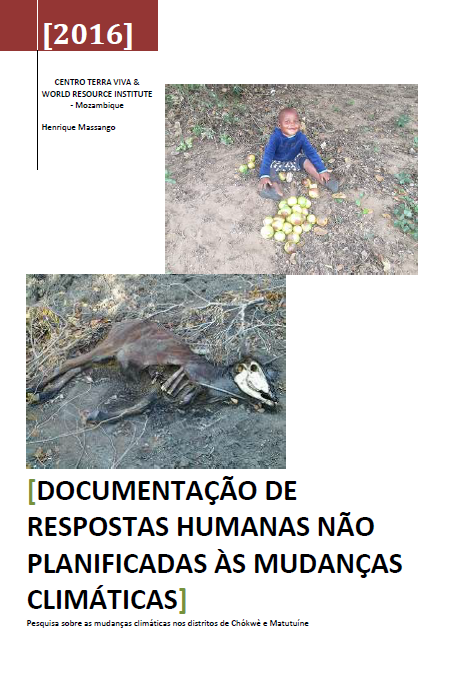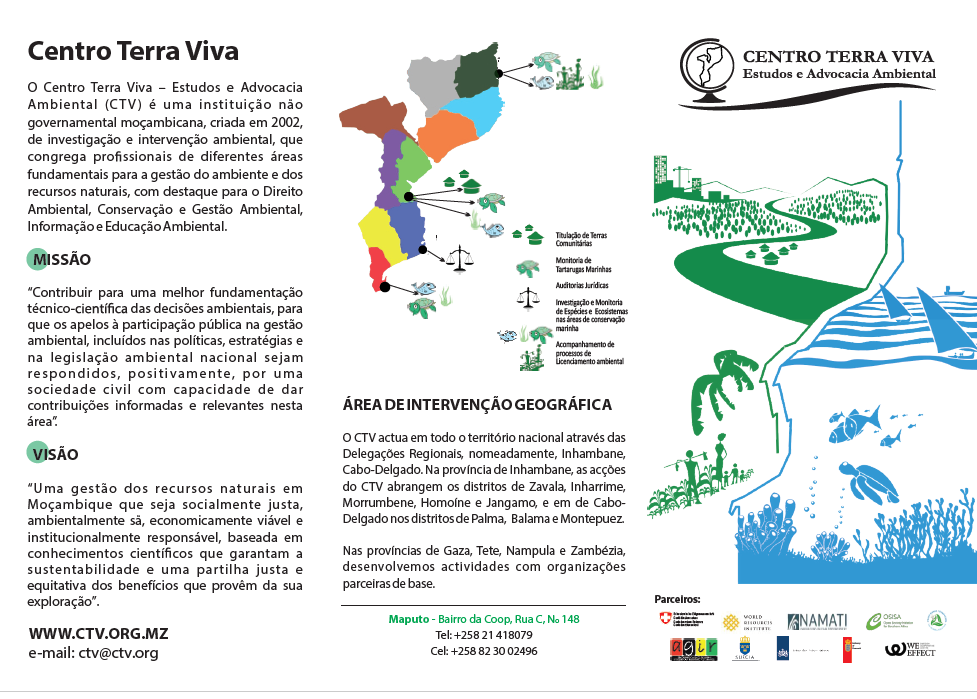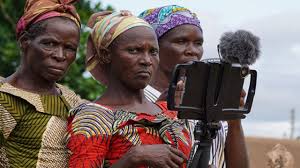Perception of local community and the willingness to pay to restore church forests: the case of Dera district, northwestern Ethiopia
In the Ethiopian highlands, church forests have a substantial contribution to landscape restoration, and conservation of endangered indigenous tree species and biodiversity. However, the environmental and economic benefits of church forests are declining due to a combination of economic, environmental, and cultural factors. This study was conducted in Dera district, Ethiopia, to assess the perception of local communities on church forests and investigate the willingness of local communities to pay to manage and protect church forests.
Prosperity prospects in contested forest areas: evidence from community forestry development in Guatemala and Nicaragua
Tropentag, September 18-21, 2016, Vienna, Austria
“Solidarity in a competing world —
fair use of resources”
Prosperity Prospects in Contested Forest Areas: Evidence from
Community Forestry Development in Guatemala and Nicaragua
Dietmar Stoian
1
, Aldo Rodas
2
, Jessenia Arguello
3
1
Bioversity International, Healthy Diets from Sustainable Food Systems Initiative, France
2
Ministry of Agriculture and Livestock, Guatemala, Natural Resources and Agrotourism,
3
Second-tier community forestry organisations and equitable resource management in the Maya Biosphere Reserve, Guatemala
Whilst community forestry programmes have combined sustainable forestry with community empowerment and poverty alleviation since the late 1970s, the role of intermediary organisations in shaping the technical and political capacities of forest user groups has rarely been systematically studied. The long-term durability of community forestry groups has been linked with the congruence between local and national determinations of tenure rights, and the involvement of local communities in determining the ‘rules' that govern the management of the forests.
Second-tier community forestry organisations and equitable resource management in the Maya Biosphere Reserve, Guatemala
Community forestry (CF) was initiated in the 1970s as a way to empower communities, alleviate poverty and manage forests. Intermediary organisations are considered to have played a critical role in the sustainability and equitability of community forest management. This study analyses a second-tier institution, ACOFOP [Asociación de Comunidades Forestales de Petén], founded in the mid-1990s by local people in the Maya Biosphere Reserve [MBR] of Guatemala. ACOFOP has been
Using dendroecology to determine growth rates of mahogany and cedar in community forestry in Guatemala
One of the main technical knowledge gaps for sustainable timber production in tropical forests is the lack of reliable information on tree growth, which is indispensable for defining cutting cycles and estimating harvest volumes. We applied dendroecological methods to measure and model the diameter growth (dbh) of mahogany Swietenia macrophylla and cedar Cedrela odorata in humid tropical forests of community-managed concessions in the Maya Biosphere Reserve, Petén, Guatemala. The width of growth rings was determined in increment cores from 32 trees of S. macrophylla and 27 of C.
How To Develop A Community Paralegal Program
A toolkit of 26 items designed for people designing or improving community-based paralegal programmes. It draws lessons from both grassroots experience and research. Includes
Large Scale Land Acquisitions for Investment in Kenya
Land acquisitions, either driven by foreign investments or domestic investment needs have continued to polarize opinions. When this research was proposed, it was premised on arguments by scholars Ruth Meinzen-Dick and Helen Markelova, who had analysed agricultural land deals, and argued that there were potentially two schools of thought about foreign acquisitions over agricultural land.
Documentation of unplanned human responses to climate change
The Centro Terra Viva (CTV), in partnership with the World Resources Institute (WRI), promoted the implementation of the project on ‘documentation of unplanned human responses to climate change’. This project was part of a more general WRI approach, involving other countries, to research how communities in Africa are responding to climate change and the effect of these responses on the environment and biodiversity.
Documentação de respostas humanas não planificadas às mudanças climáticas
O Centro Terra Viva (CTV), em parceria com o World Resources Institute (WRI), promoveu a implementação do projecto de „documentação de respostas humanas não planificadas às mudanças climáticas‟. Este projecto enquadrou-se numa abordagem mais geral do WRI, envolvendo outros países, para investigar de que forma as comunidades em África estão a responder às mudanças climáticas e o efeito dessas respostas no ambiente e biodiversidade.
Panfleto do Centro Terra Viva - Estudos e Advocacia Ambiental (CTV)
O Centro Terra Viva – Estudos e Advocacia Ambiental (CTV) é uma instituição não governamental moçambicana, de investigação e intervenção ambiental, que congrega profissionais de diferentes áreas fundamentais para a gestão do ambiente e dos recursos naturais, com destaque para o Direito Ambiental, Conservação e Gestão Ambiental, Informação e Educação Ambiental, Economia Rural e Sociologia Ambiental.
Widow's Cry (Pakorpa Susangho)
Pakorpa Susangho’ (Widow’s Cry) is an exploration of how corruption impacts on widows in the Upper East region of Ghana. This participatory video was devised and shot by ten widows from Kulbia, on the outskirts of Bolgatanga, using cutting-edge production techniques and equipment (including iPads as powerful video cameras). The filmmakers, whose ages range from 29 to 60, lack any formal education yet learned to operate the equipment with confidence and skill during a series of participatory video workshops packed with fun games and exercises.

